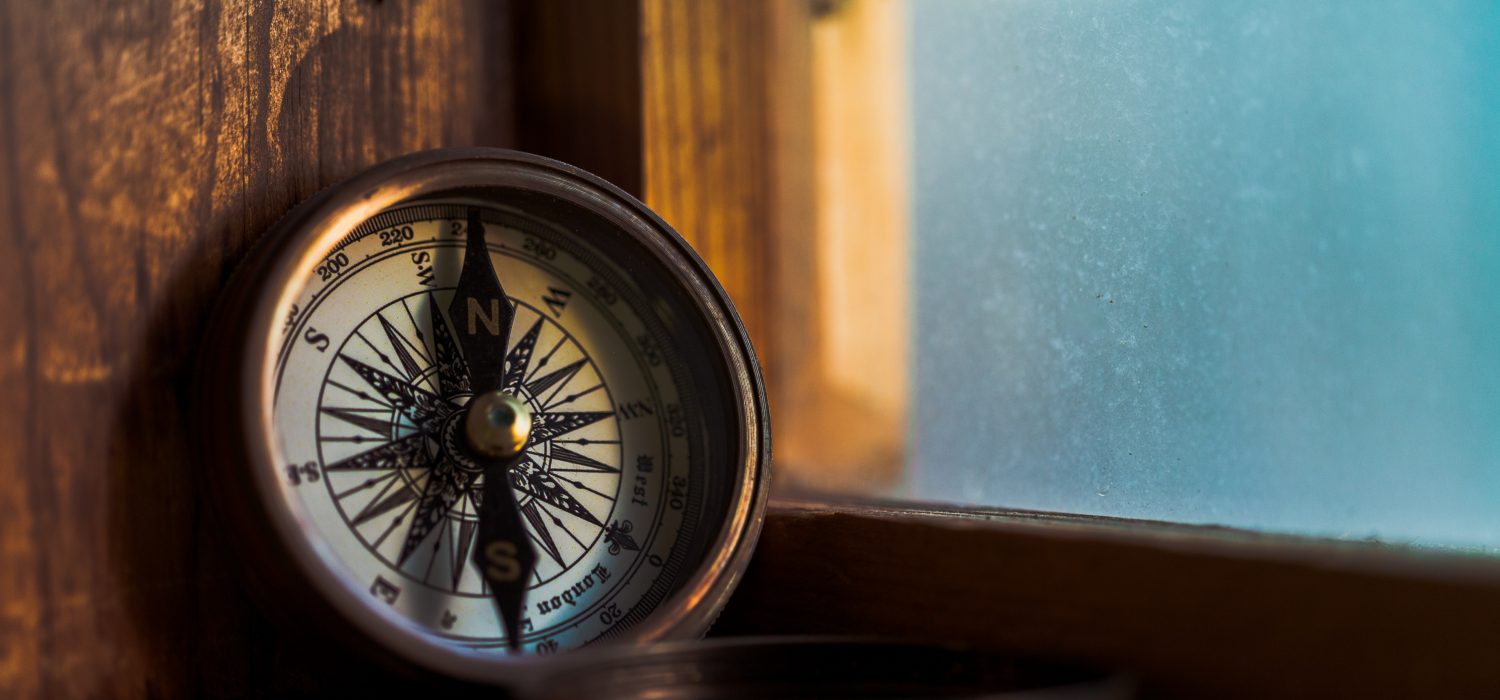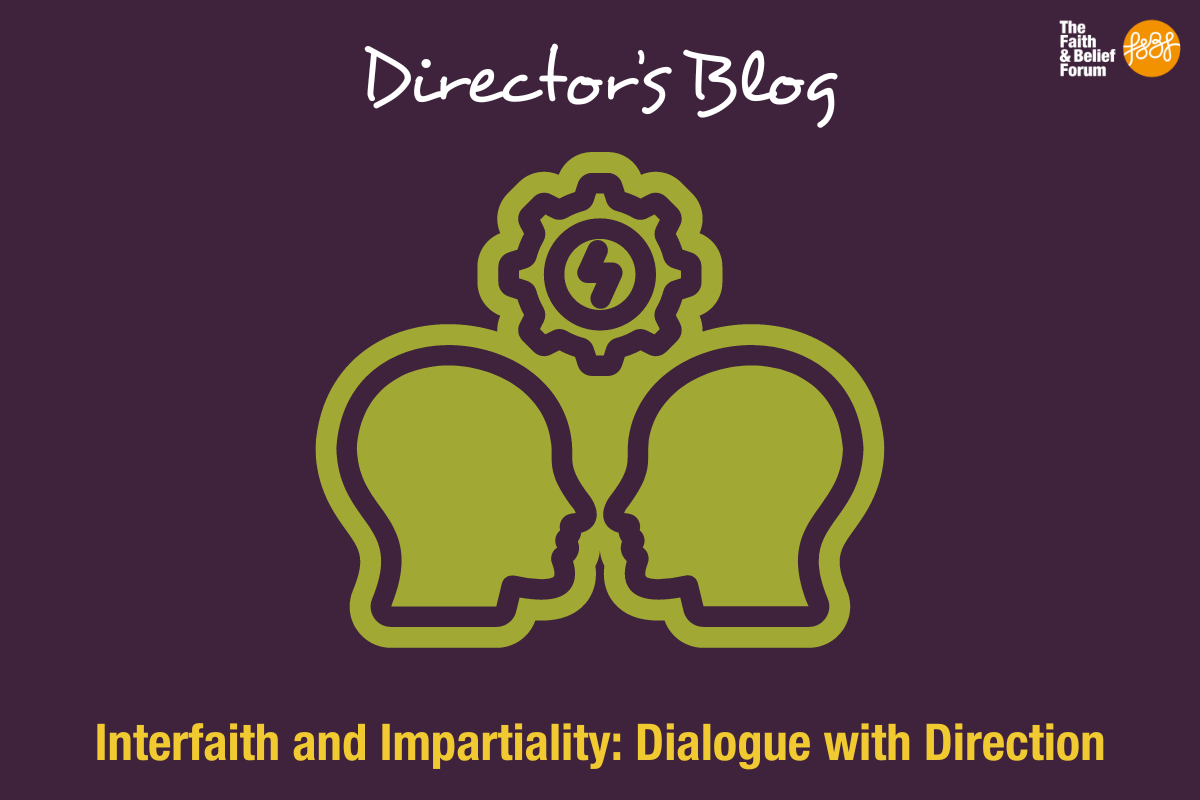
Challenging Faith Based Hate: True Stories
16 / 02 / 24
Menu

27 / 05 / 20

Who am I? Who are we? How do we live together? Our Fundraising Manager Josh Cass reflects on the effect lockdown has had on how we orientate ourselves
Working at F&BF, it’s something of a cliché to say, but there are three questions which underpin so much of what we do, and which feel like they are etched into my understanding of interfaith dialogue: Who am I? Who are we? How do we live together? For me, when we engage in dialogue these questions, at some level, are what we are speaking about. In interfaith dialogue a particular lens is applied to that dialogue, namely a faith lens.
One thing that I have learnt when sitting with, and listening to people engaged in interfaith dialogue, is how they weave stories of their faith and belief identity into and around their identity as a whole. More often than not, interfaith dialogue reveals that faith identity is something fluid that changes over time. People share how different elements of their faith tradition speak to them more (or less) strongly at different times in their lives.
“Being away from my family, I suddenly felt the absence of the celebrations and times of the year when we were together….”
“When she died I felt lost, but the comfort I found in ritual deepened my understanding of my faith identity and what those rituals meant to her…”
“Seeing so much injustice in the world, I felt this couldn’t be right, and the more I thought, the more I saw my tradition as having something important to say about it, and through that thought I found myself thinking about my faith identity far more.”
“I felt so alone, I felt let down by my community, but I didn’t believe that the way that they saw me was ‘right’ so I set out to find a way to ‘be both’ and in doing so I found others like me and together we made our community, but I hope one day that I will find a place in my old community too….”
In interfaith dialogue people talk about how their faith identity has shaped their experiences and worldview. Who am I? Who are we? How do we live together?
Though we are all experiencing lockdown and Covid-19 together, we are, at a more fundamental level experiencing lockdown alone. Dialogue post lockdown will, for the foreseeable, be grounded and framed by our own experiences of lockdown. So many experiences and reflections will shape how we each, as individuals, talk about Covid-19 and the world we each re-enter.
For me, when I think about interfaith dialogue and this process of re-entering the world, I think about the things that I went into lockdown with, and the things that I have lost (and found) as I begin to re-emerge. This period has for me, between caring for and supporting those around me and my work commitments, been a time of introspection in the sense that I been alone with my self, away from distractions which otherwise might have come between me and my thoughts.
Prior to lockdown, the map of the world that I inhabited began in my home. It extended to the school gate around the corner, via my local park to the tube station, from where I would travel to and from Kentish Town Station. From there, it extended around Kentish Town, taking in the High Street and our Faith & Belief Forum office. But this personal map also included my parents home, the home of the parents of my wife Nat, the homes of friends, and friends of my sons. My synagogue, the local library, the local shops, they too were part of the geography that I inhabited. Alongside these were modes of transport and less frequented areas – my car, local buses and London tube, which took me, took us, on outings in London, or further afield, or to the shops. And I shared those spaces with all the people who inhabited those spaces at the same time, too. Overlapping maps of reference.
My world has since shrunk dramatically – now just my home, the garden, my parents driveway, very occasionally the car. These are the spaces in which I now live and move, and for which I am finding a gratitude and appreciation of. I am aware and deeply grateful that my world does not expose me to risk that others have to go into on a regular basis either because of their work, or because they have no choice but to be in those spaces.
For me, as the space has contracted, the focus that I can give that space has sharpened. Likewise people around me, and values and elements of my identity, have come more clearly into focus.
The lockdown has coincided with a period in the annual cycle of Jewish festivals between Passover and Shavuot. More than most festivals, these have strong associations with harvests and nature, and perhaps because I am a father to two small children, we talk about the festivals and their significance. For me, I have found that the festivals (these festivals) are a way in for me to think about nature. The reverse has also been true, that the natural world (watching the changes in the trees and in our garden) has been a way to think about the festivals and by extension my Jewish identity. As I sit here and write these words, I wonder how much of this might stick once I begin to re-enter the world and the world begins to re-enter me? I suspect that these might form part of the stories which I tell of my lockdown and which for me speak to these three questions: Who am I? Who are we? How do we live together?
The current news is reporting daily of the slow re-opening of society; I wonder how the personal reflections in future interfaith dialogues will have changed when we meet again? Ask yourself these questions, maybe be surprised by the answers:
Who am I right now?
How am I being changed in this time?
What am I finding that matters to me?
How is it being revealed to me?
Am I defined by something which I am no longer able to do, a place I can no longer go, a person or group of people I can no longer be with?
Am I seeing the world in a new way?
Do I want to do things differently?
Have I started to make those changes?
Am I doing things differently so that people distant to me to feel connected?
Have I experienced others doing this for me?
Have I found connections to people who share my fears, my aspirations, my anxieties?
Those who I am physically closest to, has anything changed in how I see them and relate to them?
How do we live together?
What have we found which we value?
What have we lost?
What shall we do?
Thank you for reading this; I would be so interested to hear how you have changed in this time, and whether you feel that you will engage in dialogue differently in the future.
You can contact Josh at josh@faithbeliefforum.org

16 / 02 / 24

15 / 02 / 24

16 / 01 / 24